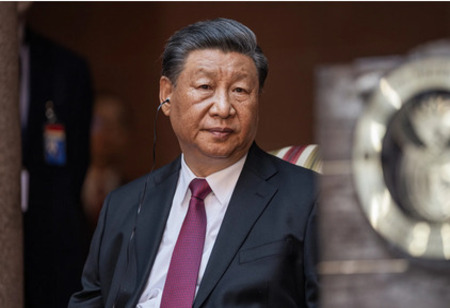
China's President Xi Urges China to Deploy New National System to Boost AI Development

 During a study session at a Politburo meeting, China's President Xi Jinping emphasized that China should utilize its "new whole national system" to accelerate AI development.
During a study session at a Politburo meeting, China's President Xi Jinping emphasized that China should utilize its "new whole national system" to accelerate AI development.
Xi promised "self-reliance and self-strengthening" in advancing AI within the country, amid ongoing competition with the US for dominance in artificial intelligence, a vital strategic field.
Some analysts suggest that China has made significant progress in closing the AI development gap with the US over the past year.
The Chinese AI startup DeepSeek captured international interest when it introduced an AI reasoning model in January, claiming it was developed with less advanced chips and at a lower cost than similar Western products.
Additionally, China has made strides in infrastructure software engineering.
The DeepSeek announcement challenged the belief that U.S. sanctions were hindering China's AI sector during an intense geopolitical technology rivalry, and that China was trailing the U.S. following the notable launch of OpenAI's ChatGPT in late 2022.
He remarked that the establishment of regulations and laws for AI should be accelerated to create a "risk warning and emergency response system" to ensure that artificial intelligence remains safe, reliable, and controllable.
Last year, Xi stated that AI should not be a "game of rich countries and the wealthy," while advocating for enhanced international governance and collaboration on AI.
Xi recently held a meeting with some of the most influential tech leaders in the country, including the iconic founder of Alibaba, Jack Ma.
This assembly—the first of its kind in five years—was not merely a symbolic act; it was a strategically planned initiative aimed at reassuring China's private sector, particularly the technology industry.
Also Read: Lisa Tzwu-Fang Su: The Woman Leader Powering the Future of Computing
The gathering occurred just weeks after Chinese startup DeepSeek introduced its latest AI model, which caused significant shifts in global stock markets and among AI competitors by achieving performance levels comparable to those of major US companies at a much lower cost. Its success has also fostered hope within China’s tech sector, which is still in the process of recovering from a stringent regulatory crackdown that lasted over three years.

